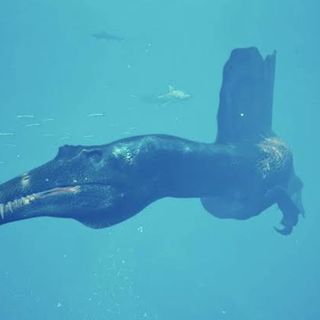A study has found that sea turtles may confuse plastic debris with food. This is because the chemical gas released by plastic that has been soaking in the ocean, dimethyl sulfide, is the same as the one produced by phytoplankton, a major source of food for various marine animals.
For the study published in Current Biology, researchers exposed 15 loggerhead sea turtles to a variety of smells, including that of water which is neutral, for control, and of food such as shrimp and of new ocean-soaked plastic.
They found that the turtles ignored the smell of water and clean plastic. However, when the tank the turtles were held captive in was puffed with scents of food or plastic that had been in the ocean water for long, they increased their sniffing above water, a behavior turtles typically display while looking for food.
Related on The Swaddle:
We’re Eating Thousands of Microplastics in Our Food Each Year
Researchers also observed no difference between turtles’ response to food and ocean-soaked plastic, implying that plastic may generate foraging behavior in them.
This finding could be one reason why sea turtles have been increasingly found wrapped in or eating plastic, suggesting how harmful dumping plastic into the oceans is for marine life.
The ocean’s plastic problem is not limited to sea turtles, but also plagues seabirds and fish for the same reason, the scent that leaves them confused between plastic debris and food. And for sea birds, ingesting plastic could result in impaired kidney function, raised cholesterol levels, reduced body mass, wing length, head, and bill length. It is also one of the major reasons that their population is declining faster than any other bird group in the oceans.
While we’re yet to see the health impact of plastic ingestion on sea turtles, it is known that more than a million seabirds and marine mammals die because of it each year, per UNESCO. It’s time we rethink our stance on plastic usage and its disposal to stem the crisis.




